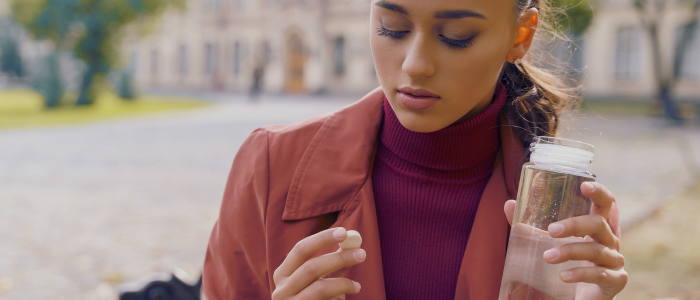How Hypnotherapy Helps Break Unwanted Habits
How do Habits Form?
A habit is a repeated pattern of behaviour and this pattern can be seen as having a trigger, an action (the behaviour) and reward. These habitual behaviours become almost second nature because they get stored deep within a primitive part of the brain called the Hippocampus which is designed to store information that helps us quickly take action to stay safe and find balance or homeostasis.
Stored in the Hippocampus, there’s a kind of library of records - a memory of experiences linked to behaviours that creates a kind of template for responding to certain triggers in a way that doesn’t require too much conscious thought. In fact, the template or habit can be very difficult to override, even when we are conscious of it!
It’s highly efficient and very useful when we want to have an automatic response ready to go to keep us safe. Think of a child who touches the hotplate on a stove and gets burned. The hippocampus stores the information received from this experience as a template memory so that the child is reminded to not touch the hotplate. You would agree that this is useful and that most of us have an understanding that we should avoid touching the stovetop. That just makes sense if we want to avoid pain and injury.
Now, of course, there are many other experiences we might experience repeatedly and a habit can then form and lead our unconscious mind to the same conclusion… To avoid pain and injury it just makes sense to:
- Ease the discomfort of stress after a long day by pouring a glass of wine
- Stay up late watching TV to avoid lying awake in bed with our distressing worries
- Retreat from our loved ones to avoid conflict
- Hide parts of ourselves that we don’t want other people to negatively judge us for
- Ignore what we truly want so that we can keep the peace
- Over-extend ourselves to avoid the pain of letting someone down
Now, pouring a glass of wine to unwind every now and then is not usually a problem. If you’re feeling particularly stressed though, and that glass of wine helps you feel relaxed, then you create a template that associates wine with solving the problem of stress. Then, the next time you feel stressed, you’re more likely to think, ‘I feel like a glass of wine’. If you’re having a stressful week, and do this for a few nights, it begins to form a habit. And of course, the more times you repeat this, the more ingrained the habit becomes and the more difficult it is to break the pattern, so that even when you’re not stressed, you finish work and pour a glass out of habit.
How does Hypnotherapy Help?
During a hypnotherapy session, we will explore what some of the triggers might be that lead to the behaviour and what emotional needs the habit meets. We might talk about what alternative options or healthier behaviours would be best to replace the unwanted habit and how these have the potential to meet the need.
I then guide you into a deep state of relaxation called hypnosis, and it is when you are in this state that the subconscious mind is more open and receptive to change. It is during hypnosis that a new, positive behaviour can be installed in your subconscious mind as an alternative response to the pain or discomfort that you unconsciously fear.
The tip of the Iceberg
I want you to imagine an iceberg. Above the surface you can see with glistening clarity what the iceberg looks like. However, under the surface there’s a much larger mass and this unseen, unknown part of the iceberg can be deep, dark and dangerous (especially if you’re the titanic!).
Our minds are like the iceberg where the tip represents the conscious mind, and beneath the surface lies the subconscious. It is thought that more than 80% of our behaviours are driven by the subconscious mind which is why hypnotherapy is so effective for changing behaviours that have become so habitual, so deeply rooted, they’re often difficult to fully recognise.
Most people report feeling more relaxed, calm and confident after hypnotherapy, and with the combination of consciously understanding why we do what we do, paired with shifting subconscious thought patterns, it becomes much more difficult to continue repeating unwanted habits and requires much less effort to begin practicing healthier habits.
Want to break fee from your habits? Book with Amanda today!
Amanda Davies
Diploma (Clinical Hypnosis), Advanced Cert. (Trauma, Grief & Addiction), Cert. (Anxiety & Depression) Cert. (Life Coaching)
Amanda is a qualified Clinical Hypnotherapist and she is a Clinical member of the Professional Hypnotherapist Association of Australia. With over 15 years experience, Amanda has empowered many to create positive change and move forward.
Amanda has a special interest in phobias, negative self-talk, anxiety and the mind body connection in wellness, therefore eradicating self-sabotage and unlocking people’s full potential.








